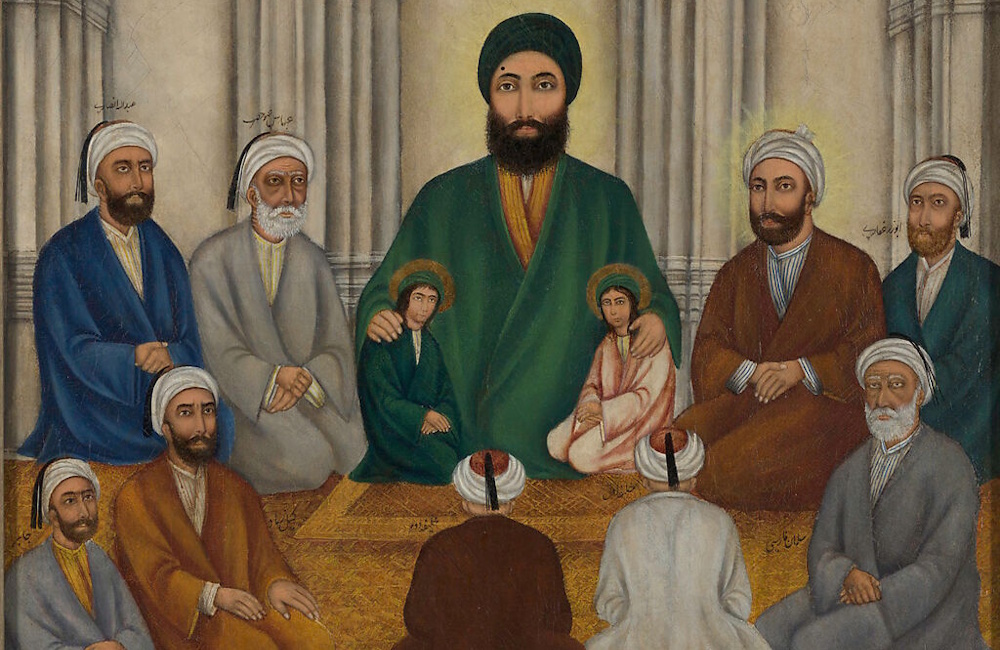Muhammad’s emergence as a religious leader in the 7th century is viewed, from a Christian theological perspective, not merely as the birth of a new faith, but as a deliberate response to a spiritual and prophetic gap—particularly within Judaism. The Jewish people had long awaited the coming of the Messiah: a divinely appointed savior, foretold by the prophets of the Old Testament, who would bring justice and redemption to Israel. However, they rejected Jesus of Nazareth as this promised Messiah, leaving, in a sense, a “vacant role” in their eschatological vision.
It is within this context that many Christian thinkers argue Muhammad saw an opportunity. He stepped into that vacancy by proclaiming himself the final prophet and messenger of God, potentially seeking to fulfill that lingering messianic hope. But unlike Jesus—who claimed no earthly power—Muhammad combined spiritual leadership with political and military authority, presenting himself as both lawgiver and reformer, prophet and ruler. Despite this ambitious claim, the Jewish communities of Muhammad’s time did not accept him as the Messiah, nor as a true prophet in the line of Moses or Elijah. During his lifetime, Muhammad incorporated several elements reminiscent of Jewish practice—such as monotheistic worship, ritual purity, fasting, and legal regulations. However, after being rejected by the Jewish tribes, he deliberately broke from their tradition and began to establish a separate religious identity. Yet both during and especially after his life, Islam began to adopt a framework that reflected and, in many ways, replicated the structural patterns of rabbinic Judaism. The development of Hadith collections, the Sirah (biographies of Muhammad), Tafsir (Qur’anic interpretation), and Islamic jurisprudence (fiqh) produced a body of religious literature and commentary that functioned similarly to the Talmud and later rabbinic writings. Islamic scholars, like the rabbis before them, constructed elaborate systems of law, theology, and exegesis that expanded far beyond the original text. Over time, Islam came to imitate the Jewish model of layered religious authority, producing a vast secondary tradition that shaped the faith and practice of Muslims in much the same way the Oral Torah did for Jews.
With regard to Christianity, however, Muhammad found himself facing a theological barrier. Central to Christian belief is the divinity of Jesus Christ—God incarnate, the Savior of the world. For a Christian, this is the ultimate and complete revelation of God to mankind. If God Himself has entered history, then no further prophet can surpass or even equal such a revelation. For Muhammad, who rejected the idea that God could become man, Jesus had to be recast not as divine, but as merely one in a line of human prophets. This redefinition is seen by Christians not only as a doctrinal error, but as a profound theological inversion. The Christ who claimed to be the Son of God, who forgave sins, who rose from the dead, is reduced in Muhammad’s message to a revered teacher—but ultimately subordinate to himself, the so-called “Seal of the Prophets.” From a traditional Christian perspective, Muhammad’s reported encounter with the angel Gabriel—a foundational moment in Islamic tradition—poses a serious spiritual danger. According to the apostles and Church Fathers, the ultimate test of any revelation is whether it confesses Jesus Christ as Lord—crucified, risen, and divine. Scripture plainly warns: “Every spirit that does not confess Jesus is not from God. This is the spirit of the antichrist” (1 John 4:3), and “Even Satan disguises himself as an angel of light” (2 Corinthians 11:14). On this basis, many Christian theologians throughout history have concluded that Muhammad was misled by a false spirit. What he believed to be divine revelation was, in truth, a counter-revelation—one that denies the divinity of Christ and thus leads souls away from salvation.
This is not merely a theological disagreement, but a direct assault on the heart of the Gospel. If Jesus is not God, then His death is stripped of atoning power, His resurrection is meaningless, and humanity remains lost in sin. In denying the divine person and redemptive mission of Christ, such a message nullifies salvation itself. No matter how noble its ethics or powerful its claims, any message—angelic or human—that rejects Christ’s identity and work must be regarded as deception. This is not just error; it is spiritual warfare, and the consequences are eternal. Thus, Muhammad stands as a pivotal and controversial figure. He presented himself as the final prophet, yet denied the central truth of the Gospel. He founded a religious system that resembled earlier traditions but reversed their conclusions. Whether seen as a reformer, a political genius, or a spiritual leader, for Christians he remains a man who rejected the Incarnate God—and in doing so, led many away from the only true source of salvation: Jesus Christ.
